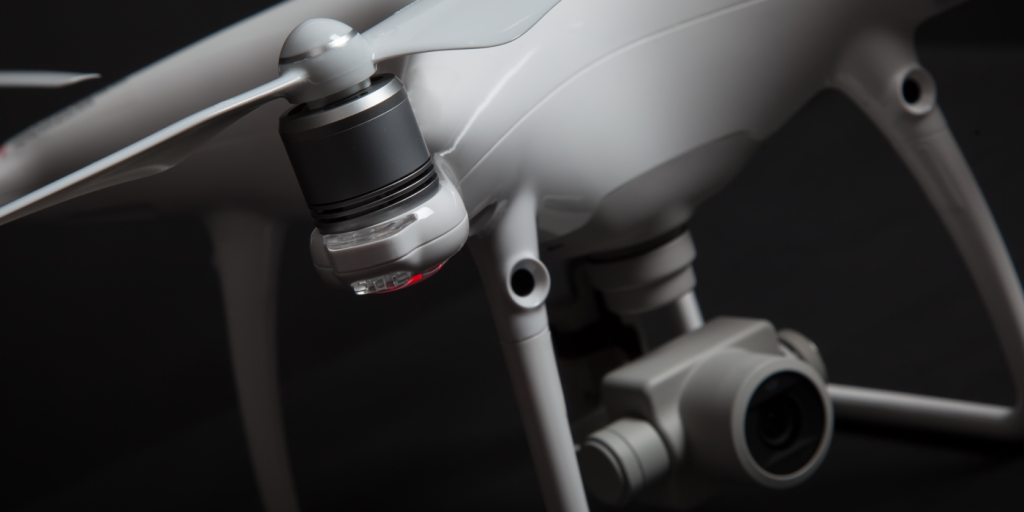Today we welcome Paul New, Executive Director of The Institute for Drone Technology™, to outline the ins and outs of legal liability for drones.
Commercial drones are changing the face of Australian business. They are doing jobs previously done manually – better, faster and safer.
In a whole range of industries from maritime to construction, from infrastructure to power generation drones are providing capabilities including inspection, monitoring, security, assessment and even delivering objects. Drones can be in the air, on the ground, on the water, or under water.
The opportunities for business seem endless and the innovation has just begun.
But, as with all innovation, there are significant risks associated with the use of drones, and the liability issues around their use are yet to be sorted out in the courts.
So, what should directors and officers of companies who are using drones be doing?
Did you know OH&S applies to drone operations?
A High Court decision last month (Work Health Authority v Outback Ballooning Pty Ltd) held that the OH&S Regime applies even where Federal Civil Aviation Law applies. The case dealt with a serious accident causing death regarding a hot air balloon, the argument was made that as the hot air balloon was regulated by CASA (a Federal body) the State and Territory OH&S laws would have no application. The High Court held this was not the case. CASA regulates the operation of the hot air balloon in addition to State and Territory OH&S Laws.
Drones are also regulated by CASA, so this case is of enormous interest to all businesses using commercial drones. It means that it is now clear that drone use is subject to the OH&S Regime. This is a regime that makes directors and officers personally, and sometimes criminally liable for breaches.
In light of this High Court decision every director in Australia should be asking whether drones are used (or being considered) in their business. If the answer is yes, then with personal liability on the horizon they should consider our recommendations below.
Drones and legal liability
In addition to OH&S – directors under their Common Law and Corporations Act 2001 obligations, must ensure their business understand the potential risks of using drones and is taking reasonable steps to mitigate them. There is no doubt that there is a duty of care attached to commercial drone operations, and to breach this could result in significant liability.
Here are some recommendations to help you and your business understand best practice. You will see they are a multidisciplinary approach – practical compliance systems, technical advice and support as well as industry knowledge and legal assistance with contracts, policies and insurance reviews.
1. Operations on flying days
CASA Regulations and approvals must be complied with on flying days, and there needs to be a systematic approach to recording this. This is where Dronesafe® can provide a solution. Dronesafe’s product is a structured and consistent step-by-step pre- and post-flight checklist for drone pilots to ensure safe and effective usage while also providing an audit trail of all flights.
If there was an accident and you had to show that you were complying with your duty of care – having a record of compliance with the CASA Regulations would be a first, very important step.
2. Who is flying the drones?
Are your employees operating the drone or is it an independent contractor? Either way, the drone should be operated by a CASA accredited Remote Pilot Licence holder. If this person is contracted to provide the service, then you should carry out some due diligence on this operator and enter a formal agreement with them. This agreement should set out where the risk and liability sit and the pilot’s obligation of competency and care.
Where the pilot is employed then an employment agreement should be in place and adequate policies around use and risks should be drafted and complied with. This employee must be adequately trained and supervised.
3. Fitness of the drone
How can you be sure your drone is fit for the job? If the drone is owned by the pilot, there should be warranties dealing with the maintenance and reliability of the drone in a formal agreement.
The Dronesafe® system also deals with aspects of this – battery charging and maintenance checks for example. If you intend to own the drone, then the consulting services of the Institute for Drone Technology can provide advice on what technology is appropriate and reliable.
Whether or not the drone was considered fit for purpose and appropriate for the role it was carrying out would be relevant to a court considering a drone that failed and caused damage, injury or death.
4. Policies and Procedures
A court would expect all businesses using drones to have well documented Policies and Procedures relating to drone use. In particular, in light of the High Court decision discussed above – all OH&S Policies should be considered and updated in light of commercial drone usage.
5. Staff training
Policies and Procedures are no use sitting in a bottom drawer. Once drafted there would need to be structured staff training relating to drones and their risks. The Institute for Drone Technology is also an expert in training in the drone industry and would be able to assist with this.
6. Insurance Review
You cannot automatically assume that Insurance Policies that you have in place will respond to an injury, damage or death from the malfunction or misuse of a commercial drone. It would be prudent to have a review conducted of your insurance policies to consider how they would respond to misadventure by drone.
Until some incidents occur that find their way into courts it is difficult to predict exactly how duty of care and the OH&S Regime will be applied. What we do know, however, is that they will be – and that there is a real risk of personal and criminal liability for directors.
The Institute for Drone Technology have legal resources in addition to deep understanding of the technology and best practice (and access to the industry’s best compliance regime). We have the tools and skills to assist you in discharging your duty of care and protecting yourself and your business.
About Paul New

For more information call 1800 376 638 or visit dronetechinstitute.com.


